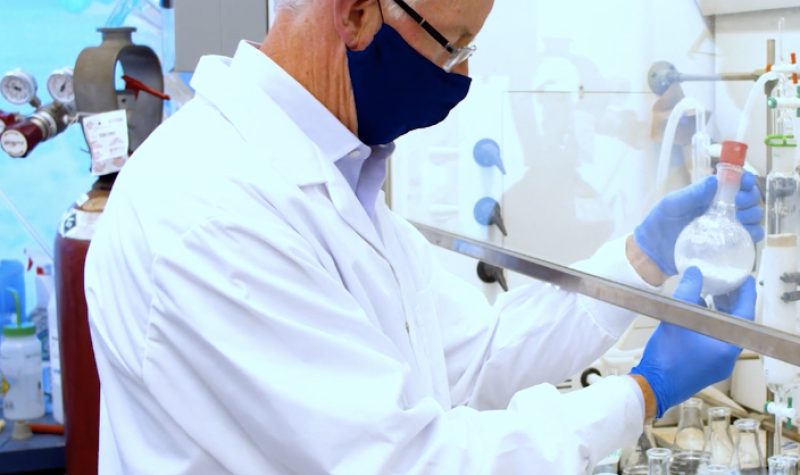By David P. Ball
---
Dr. Thomas Madden, with Acuitas Therapeutics at UBC, says that most vulnerable communities will be first to receive the "90% protective" vaccine he helped discover.
A Vancouver scientist says he is proud of his team's contribution to the world's most promising vaccine candidate yet to defeat COVID-19 — and potential begin the end of the ongoing pandemic.
And with the Prime Minister promising that any vaccine distributed by Canada would target the most vulnerable populations as a priority, seniors and those with compromised immune systems and respiratory illnesses would likely be at the front of the line.
Dr. Thomas Madden's his firm Acuitas, based at the University of British Columbia, has become something of a global celebrity after it played a key role in developing the most promising coronavirus vaccine yet — believed to be 90 per cent effective, far higher than average flu vaccines or any COVID-19 candidate so far.
Because of the lack of immunity or vaccine — and uncertainty about whether people can become re-infected after catching it — the virus is predicted to continue unchecked until a vaccine is widely available.
"We've got interim results … they've given 44,000 people either the vaccine or the placebo," explained Dr. Thomas Madden, president and CEO of Aquitas Therapeutics based at the University of British Columbia, in an interview with The Pulse on CFRO. "Based on that initial analysis, they say the vaccine is more than 90 per cent protective against infection.
"It's really exciting, everybody at Acuitus has been supporting this vaccine since February … we're looking forward to the time a vaccine can be available and start to protect people from this virus."
So far 1.3 million people have died worldwide from the coronavirus, which has no vaccine or cure, out of the nearly 52 million who have caught it.
Canada has lost nearly 3,000 of its citizens to the disease, and the case numbers have surged dramatically in the past month as the country hits its long-feared "second wave." In B.C., the number of new cases has hit four times greater daily than the worst day of the "first wave" in March.
Dr. Madden's firm helped create "delivery technology" using nanoparticles that can bring the vaccine into patients cells. He said more study and a larger group of patients are still needed to give a more accurate conclusion.
He has been in Vancouver since coming to UBC from England in 1980. He is described by UBC as a "world-renowned expert in nanotechnology."
Asked about the ongoing questioning among some communities to vaccinations, Dr. Madden said that people should be reassured that vaccines have been essential to humanity overcoming pandemics far worse than COVID-19 — and there will quite likely be more to come.
"History has suggested there's always that risk, this is a realistic threat we need to be prepared to address," Dr. Madden said. "Vaccines have been used very successfully for well over 100 years.
"Most of us alive today are very fortunate that we haven't witnessed the devastating effects that viruses such as polio and smallpox have had — viruses that killed hundreds of millions of people before the availability of vaccines … Vaccines have been shown to be generally very, very safe."
The discovery was hailed by Prime Minister Justin Trudeau as "light at the end of the tunnel," in comments Monday.
"We have secured access to a broad range of vaccine candidates," Trudeau told reporters. "The Pfizer/BioNTech vaccine candidate published some very promising results and seems to moving forward quickly, we've secured millions of doses of that vaccine candidate.
"When it is safe to distribute, we will certain begin distributing it in Canada to high priority groups … likely in the first three months of 2021."
Trudeau said the only downside of the new vaccine is that it must be stored around -75C, making distribution across the country more complicated. But key is to protect the most vulnerable, who are at highest risk of severe, long-term health harms or death.
"When vaccine supplies are first available, they're likely going to be provided to those most at risk for contracting COVID-19, and only as further supplies become available will everybody be able to be protected," Dr. Madden explained. "And developed countries have already committed to providing the vaccines to less developed countries, which is a fantastic initiative."


